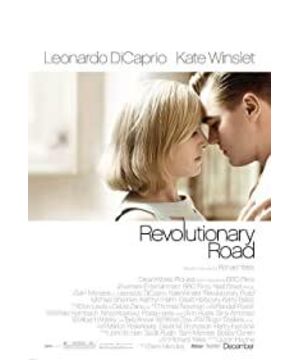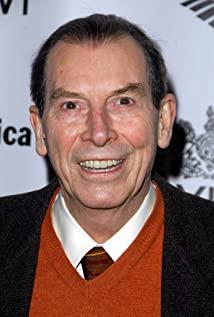No, Frank, I'll tell you what's impractical. It's unrealistic to let an ideal man do a job he doesn't want to do day in and day out, go back to a place he doesn't want to be, and face a wife who can't stand it either.
The film has nothing to do with politics or war. It is about dreams and freedom, people's self-worth, and the crisis of middle-class society in the United States at that time.
This is a great work, but it is also destined to be a work that will only make a few people cry. It contains a desperate message that the audience must either possess sufficient historical knowledge or have a keen empathy to perceive adequately.
This is also the re-cooperation between Wentles and DiCaprio after the sinking of the Titanic. These are two completely different themes, from the most absurd doomsday encounter to the most realistic and indifferent ordinary life. Both put on excellent performances, and Winterless won the Golden Globe for Best Actress. In fact, Xiao Li's performance is enough to win the best actor, and he doesn't need to rely on "The Revenant" to prove himself in a masochistic way later. That is not acting at all, but fighting for his life.
The title of the film comes from a street where the hero and heroine relocated in the film. I think the author borrowed this place name to imply the message that this society needs to make changes.
The two play a middle-class couple in the film. The wife is a failed actor who became a housewife after her dream was interrupted, and the husband is a middle-level company who inherited his father's business, but he could not find the slightest sense of accomplishment in this job.
Finally one day, his wife unexpectedly proposed to move to Paris to live in, which is the ideal world they all yearn for.
However, this was the beginning of the family's demise.
The wife is an artist thinking, not so much that she is pursuing freedom and dreams for her husband, but rather that she wants to escape from the current life. Because obviously, who in the audience sees what the husband's dream is in the film? But the wife obviously wants to be an artist. One of them wanted to have a peaceful life, while the other looked up at the moon, and they were not the same people.
But they are both hypocritical. The wife used her husband as an excuse to get her own escape. After she failed, she gave up on herself and had a one-night stand with a man she didn't like. She believed that the children were her obstacles. She never cared about her two children, and became the third child. When the accident came, she wanted to destroy it privately. After the plan failed, she smoked regardless.
The hypocrisy of Xiao Lizi is that he does not dare to admit his weakness. Although he does not like stagnant work, he does not have the courage to escape. When his wife became pregnant unexpectedly, he found a good excuse to justify his wife's delusions. Hit the ground.
In fact, everyone has the right to freely choose their own life, and everyone can choose to live on or go wild. But it is often selfish to pay attention to your own results. Know how two selfish people should live together? They shouldn't live together.
But this is not just limited to a family movie, a love movie, it talks about the crisis of middle-class society in post-war America. Both husband and wife are mentally empty people, but in their hearts there is some kind of inexplicable ideal, which is indeed unrealistic. But more seriously, this is the mental illness of that generation, the social cage of that era. If you can feel the pain and longing, then you are more like a living person, and those who are restless and empty are the real mental paralysis.
When the couple's dreams came to nothing and were trapped in place, a huge collapse occurred in the wife, and she became incompatible with her husband. But again, to my surprise, the next day, they were reconciled. As expected, the movie should end at this point, and life returns to its hypocritical and empty numbness. If it ends like this, it's still a good movie, but not great.
In the last ten minutes, he truly reached the heart of society and completed his sublimation. The wife bid farewell to her husband peacefully and ended her life in a tragic way. It is precisely because of this despair that the most powerful resistance makes us hear the pulse of that era.
Another point that has been done extremely well is that the film shows the life scene of the middle and lower classes at that time through the description of the crowd around the couple, so that this tragedy is deeply rooted in the soil where it is located, which is extremely reasonable and impactful .
In the film, the house was rented to the couple's family, which played a very good role in rendering the social environment at that time. The family has an adult son who is extremely smart, but he was treated as a neurotic and received many electric shocks, which made him lose the talent he had and become a useless person. He has come to the couple's home twice, and the film uses this neurotic but most sober character to ruthlessly tear apart the hypocrisy and acne of that society.
The film also ends with the shot of the family, making a final emphasis on the indifference of that society, making this tragedy even more hopeless and more established. In the end, the tenant's wife sneered at "Wintles" who died tragically because of her loss of self, and could not understand her helplessness and pain at all. Her grim remarks made me immediately understand why his son was the way he was in the film. At this time, the husband opposite her turned off the hearing aid, and used the last bit of ability to resist, forming a certain understanding and solidarity with "Wintles". Moreover, the story beneath the story—the part of the iceberg below the sea level—suddenly became incomparably real and perceptible.
View more about Revolutionary Road reviews











